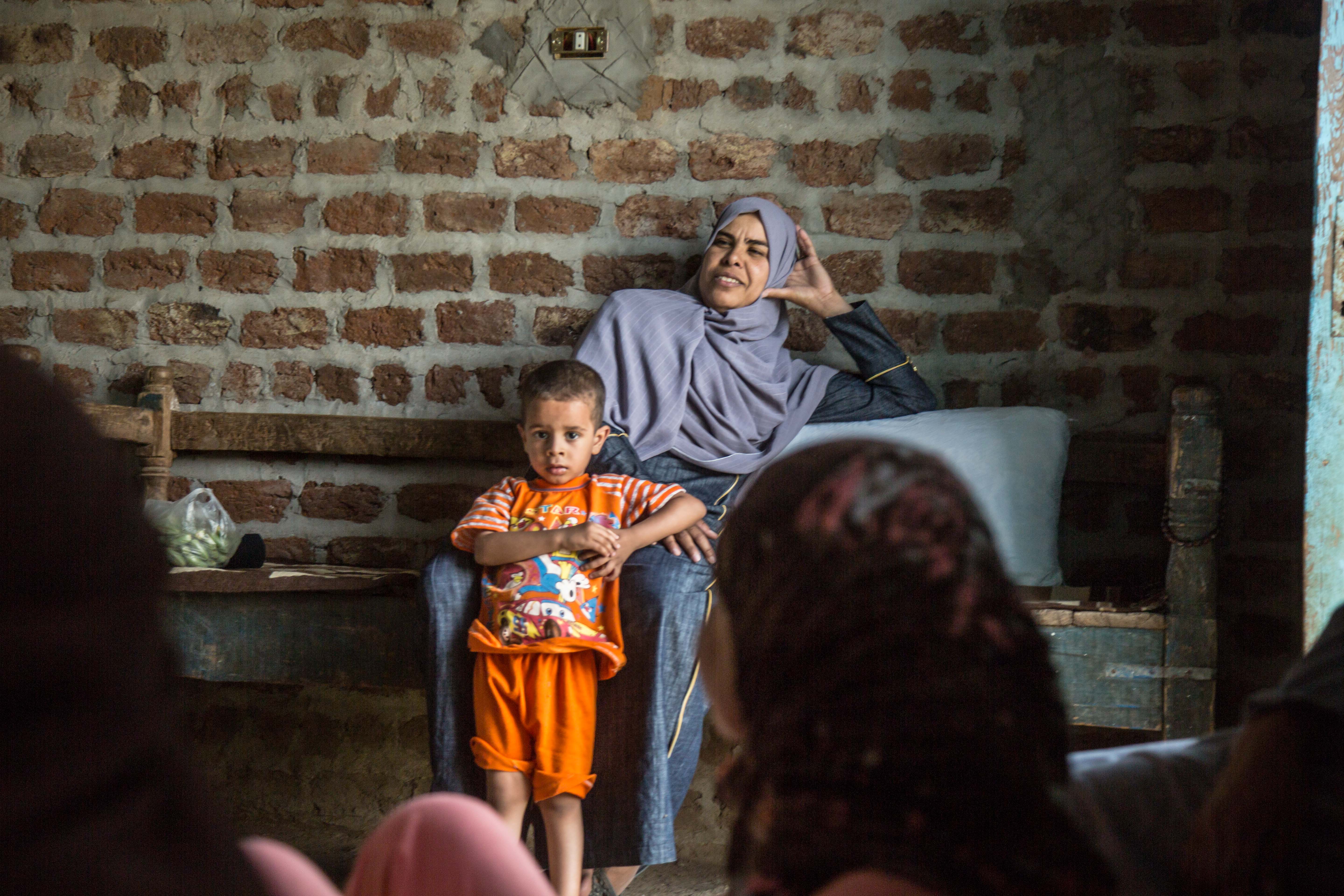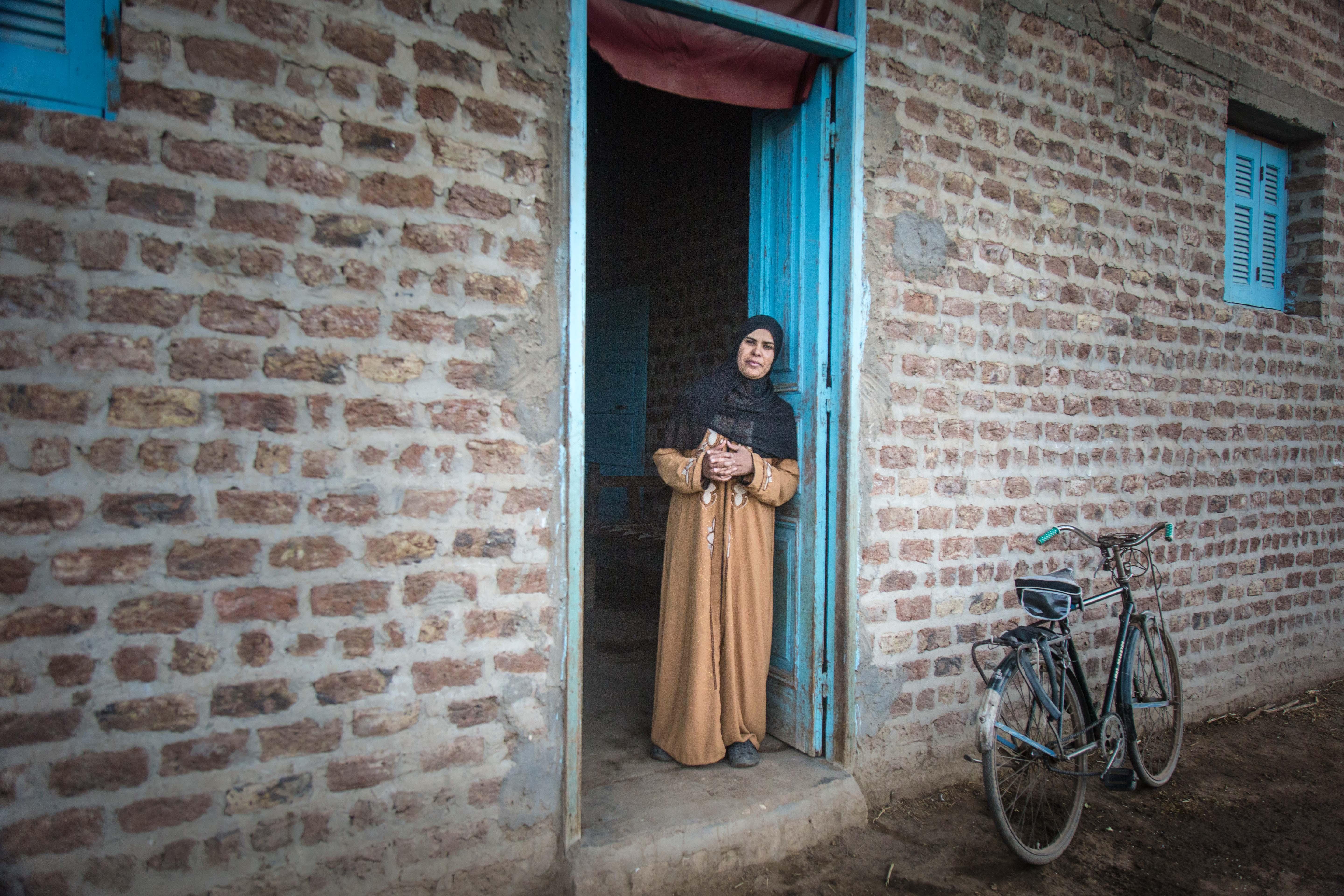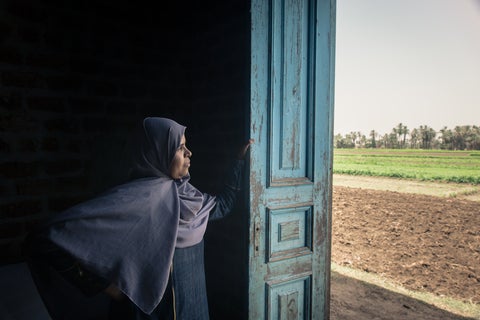Behind the quiet appearance of Hoda Hamed, there is a very strong 37-year-old woman who works at the Egyptian Red Crescent society as a kindergarten teacher in her hometown in Assiut in Upper Egypt. Hoda and her husband Mostafa are the proud parents of four children: two teenage girls and two younger boys, who all go to school.
Hoda’s parents did what they believed was a social and cultural imperative in Egypt: they had the outer parts of her genital organs mutilated, a practice that is widely spread in Egypt and known as female genital mutilation (FGM). That traumatic experience left Hoda with deep physical and psychological scars as a child and later as an adult. As a grown up, Hoda started attending training sessions in her village about the harmful effects of FGM, and realized that what many believed to be an imperative was in fact a custom. She decided that her daughters would not go through the trauma she had gone through as a child.
Sitting through one of these awareness sessions transformed me, I realized how much we married women who have been mutilated suffer unnecessarily. I decided that I would not allow my daughters to be cut.
Stubbornly standing her grounds, she convinced her husband to drop the idea too, and started actively reaching out to the women and men of her community to convince them to do the same. Mostafa had changed his mind following both the pressure from his wife but also his own realization, through the awareness sessions organized by UNFPA and its partners that showed FGM had only negative effects on girls, and was not enshrined in any religion.

“It is difficult to convince people to let go of this tradition. Most of them believe it is a religious requirement, and they continue to endorse it despite having been made aware of the dangers associated with it,” says Hoda when asked about what the people she met thought. “However, I also know many families who have refused to have their daughters mutilated, but do not say it publicly to avoid condemnation by the community around them.”
Hoda is very busy organizing various group sessions where she talks to people about how harmful FGM is, and visits families in their homes to advocate against that practice, sometimes even threatening that she would report the parents to the police if she found out they were going to mutilate their daughters, for FGM is illegal in Egypt.
Thanks to the relentless efforts of Hoda and a group of like-minded men and women, her native village issued a public collective declaration stating that its inhabitants chose to abandon FGM.
“We need to have a real change! There must be a way to raise the awareness of those young girls and boys who soon will become mothers and fathers. The hope lies in their future decisions, and we must work closely with the media to reach every household, every mother and father, and convince them to put an end to this practice.”
FGM is widespread in Egypt despite being criminalized in June 2008. According to the national 2014 Demographic and Health Survey (DHS), 92 percent of Egyptian married women between the ages of 15 and 49 have undergone FGM. However the survey also noted a significant decrease, from 74 to 61 percent, in the practice among girls aged 15 to 17. Despite this positive change in women’s attitudes towards circumcision, there is still broad support for FGM in Egypt, as the 2014 DHS showed that nearly 60 per cent of women aged 15-49 believed the practice should continue.
Alarmingly, the DHS found that, for girls under 19, nearly all cases of FGM are performed by doctors, nurses or other health workers. This phenomenon, known as the medicalization of FGM, threatens to perpetuate the practice by making it seem medically sound while failing to acknowledge it as a human rights violation.
UNFPA and UNICEF have been running a joint programme since 2008, working at the community, district and national levels to help eliminate FGM. The programme focuses on policy and law enforcement, the role of service providers, and works from within communities to change attitudes towards FGM. UNFPA has organized widespread TV campaigns on eliminating FGM, organized interactive theatre performances on the subject, worked closely with religious leaders both Muslim and Christian, and joined forces with the Ministry of Health to combat the medicalization of the practice, amongst other projects.
UNFPA works with a range of governmental, religious and civil society partners and supports the National Population Council in the implementation of the National FGM Strategy 2016-2020.
“I have educated my daughters about the harmful effects of FGM, and I encourage them to be active advocates in their communities,” says Hoda with determination.




